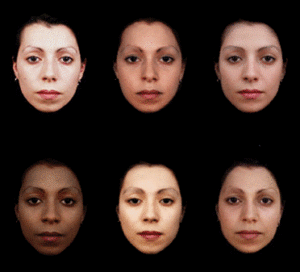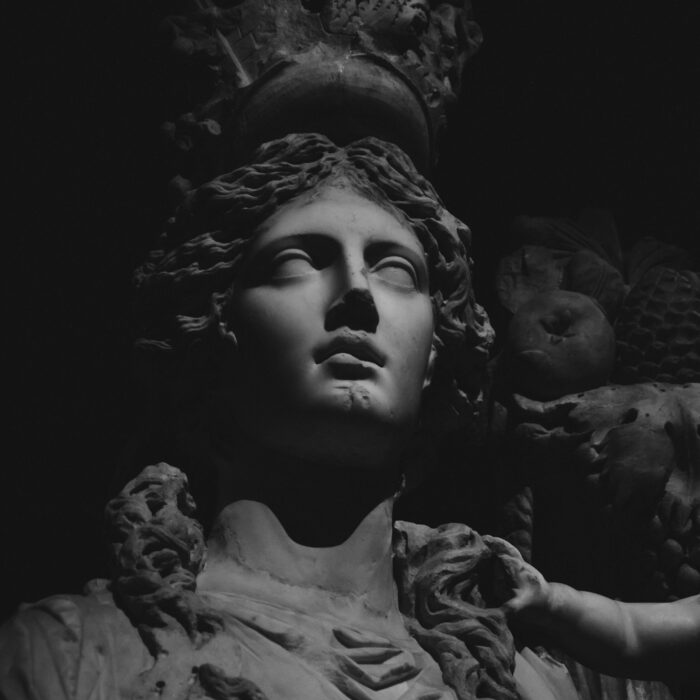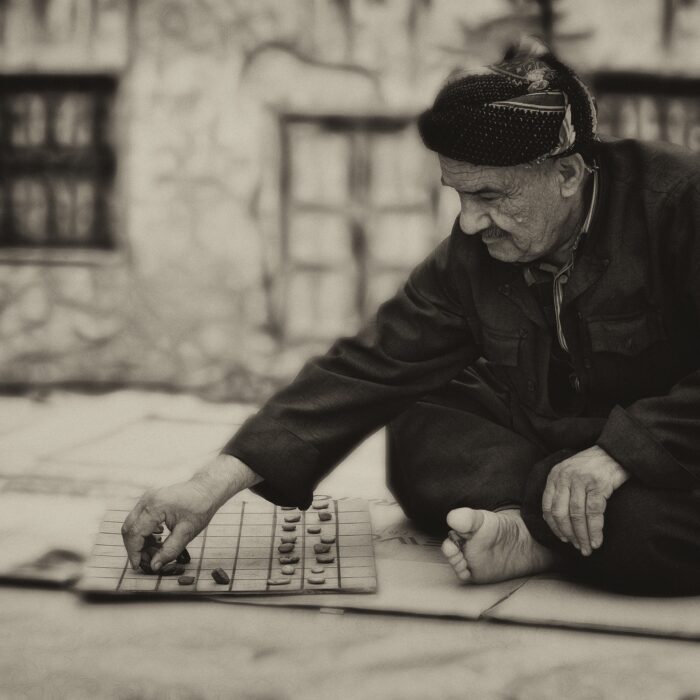You have no items in your cart. Want to get some nice things?
Go shopping She woke on the eighteenth to find all screens in mourning. She woke puzzled, eyes still shut, puzzled by the stillness of the house, puzzled by the lack of notifications and updates that could have otherwise distracted her from the void in the room. Sitting by the window, she propped up her knees, wrapping her arms around them, realizing, as she held her breath, that some form of catastrophe was about to unfold in her tiny home.
She woke on the eighteenth to find all screens in mourning. She woke puzzled, eyes still shut, puzzled by the stillness of the house, puzzled by the lack of notifications and updates that could have otherwise distracted her from the void in the room. Sitting by the window, she propped up her knees, wrapping her arms around them, realizing, as she held her breath, that some form of catastrophe was about to unfold in her tiny home.
Before looking out the window, she focused on her home. Her quiet home, not looking like itself, because the walls were black in their mourning, and because the absence on the mattress was only surfacing now. She’d started sleeping alone, that’s right. But the sheets were smart, you see, smart enough to keep her just as warm as her absentee used to. Perhaps a solitary life wasn’t for her after all. She considered calling her operator because the absentee was probably rethinking this rapture as well, wasn’t he? She stumbled through her conscience, deliberating and almost reaching a conclusion, but before that could happen, the street, which up until now had also been in mourning, began to fill up.
On a normal and non-catastrophic morning, the street usually pours a stream of neon for those scattered and few early risers, a stream in different hues and patterns to keep them from falling ill to monotony. But this morning, when the screens were in mourning, the scattered and few had turned into a throng, a sudden eruption of people, and as soon as she saw them through the shadows, recognizing their nakedness in the dark, it clicked.
That update interrupted by mourning would not reach her for another ten days, but even without the update, she’d figured it out. And knowing crushed her just as it crushed the rest of the population, crushing them enough for them to run out onto the black street, stripped bare, wearing human nakedness in cold protest towards the inevitability of death. Looking away from the window, she stopped breathing again, and then stepped away, stumbling from the glass to manually open her boxes, searching through her drawers for some form of Human skin. But had she ordered it? It was still customary to wear Human skin to prom, but by no means mandatory. She’d been such a rebel as a child, hadn’t she? And her maturing stage took place just as transparency took over the world. Even now, five centuries later, her only opaque feature was her face, albeit owning a transparent skull, one which her operator considered “too radical”. In five hundred years, she’d never thought it necessary to buy herself a Human torso.
Disturbed, blinking rapidly, she sieved through all the glamorous purchases of the past five centuries, seeing things she couldn’t even remember buying; clay wigs and pyrotechnic gloves, and amongst her endless wardrobe of bizarre, there was no sign of Their cushion-like skin. The procession was about to reach her building, and all screens remained silent, just as silent as the walkers, but how could she? She couldn’t join them now. How could she show her face, so perfectly sculpted in their image, if she was the only woman there lacking Human skin? Perhaps dressing in black. Yes, that was an option, wasn’t it? That’s what Humans had done. But how could she?
Upon reaching the end of history one was expected to shed all superficiality. And clothes were indeed superficial, even if They had invented them. She could wear a wig. A thick one, with a fringe, one that would hide her mechanical Mondrian skull. Oh, it had been such a statement piece. Wearing something inspired by a human artist was always a statement.
She tried calling her operator. She would order the skin right now, attend the procession with delay if necessary, but she would be there. She would be there, but her operator didn’t pick up because her operator was also mourning. Her backup operator, the one that blew up her bills even when she’d never used it, was also in mourning. Oh but I can’t go out there, she thought. Her transparent limbs and every other inch of her body was of their own design. Because although they adored their Creators and adored the fact that they’d been made in Their image if the past five centuries told her anything, it was that the creations had slowly developed their own aesthetic identity. Because it wasn’t just the factory workers they replaced. Artists, designers, and philosophers, soon began to appear, all of them with mechanical brains.
She calmed down. Would it be social suicide to not attend the procession? Perhaps. But humanity, with all its flaws, had always celebrated the wonder that is honesty. And there would be no better tribute to them than for her to finally admit that she didn’t care. That if she had cared, she would have been paying attention to that Old Woman’s deterioration these past twenty years and would have, at some point, gone out and bought some skin for Her, because she would have known that sooner or later she would be joining a silent procession in Her honour.
But this confidence over her makers was clawed aside when her gaze fell upon the procession, in the solemn darkness of it all, on the realization that the ten days of mourning that were ahead of her would be repeated every year, for eternity. How could she not attend the first, most solemn procession of them all? The casket had its own wheels, and it had just reached her street, the last glass coffin to ever be occupied. She couldn’t miss this. She couldn’t watch it through her frozen blinds. But what could she wear?

About Eden Summerlee
Eden Summerle lived in Scotland until the age of six, when her parents moved to Spain. She has a degree in History of Art and currently works as an English teacher in Tarragona.




